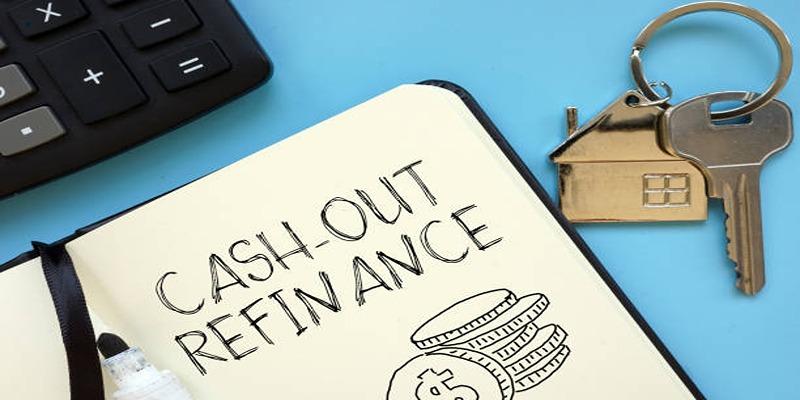A cash-out refinance can provide thousands in cash by borrowing against your home's equity, but its success depends on how you use the funds. Unlike traditional refinancing, this increases your mortgage debt and uses your home as collateral. To make it worthwhile, focus on strategies that save money, generate income, or improve your finances. Let’s explore smart and risky ways to use these funds.

One of the smartest uses for cash-out refinance money is investing it back into your property through strategic home improvements. Not all renovations are created equal, though. Focus on projects that offer strong returns on investment and broad appeal to future buyers.
Kitchen remodels consistently rank among the top home improvements for return on investment. A minor kitchen remodel typically recoups 70-80% of its cost when you sell, while major renovations can significantly boost your home's market value and appeal.
Bathroom renovations also deliver solid returns, especially if you're updating outdated fixtures or adding a bathroom to increase the total count. These improvements not only add value but enhance your daily living experience.
Installing new windows, upgrading insulation, or replacing an old HVAC system can reduce your monthly utility bills while making your home more attractive to environmentally conscious buyers. Many energy-efficient improvements also qualify for tax credits, further boosting your return on investment.
Addressing foundation issues, updating electrical systems, or replacing an old roof might not be glamorous, but these improvements protect your investment and prevent larger problems down the road. They're also typically required to pass home inspections when selling.
Using cash-out refinance funds to pay off high-interest debt can save you thousands of dollars in interest payments over time. This strategy works best when you have significant credit card debt, personal loans, or other obligations with interest rates higher than your new mortgage rate.
If you're carrying credit card balances with interest rates of 15-25%, consolidating this debt into your mortgage at a much lower rate creates immediate savings. For example, paying off $30,000 in credit card debt at 20% interest could save you hundreds of dollars monthly in interest charges alone.
While federal student loans offer certain protections and forgiveness programs, private student loans with high interest rates might be good candidates for consolidation through a cash-out refinance. Just be sure you understand what benefits you might be giving up.
Some homeowners use cash-out refinance funds to diversify their investment portfolio or create new income streams. This approach requires careful consideration of risk and potential returns.
Purchasing rental property or investing in real estate investment trusts (REITs) can provide ongoing passive income. However, being a landlord comes with responsibilities and risks, including vacancy periods, maintenance costs, and difficult tenants.
Investing in index funds, individual stocks, or maxing out retirement account contributions can build long-term wealth. The key is ensuring your investment timeline aligns with your mortgage repayment schedule and risk tolerance.
Investing in education, whether completing a degree, earning professional certifications, or learning new skills, can increase your earning potential and career opportunities. This type of investment in yourself often provides the highest returns.
Building or boosting your emergency fund provides financial security and peace of mind. Financial experts typically recommend having three to six months of living expenses saved for unexpected situations like job loss, medical emergencies, or major home repairs.
Having a robust emergency fund means you won't need to rely on credit cards or loans when life throws you a curveball. This financial cushion can prevent you from falling into debt during difficult times.
Starting a business or expanding an existing one can be an excellent use of cash-out refinance funds, provided you have a solid business plan and understand the risks involved.
Whether you're opening a restaurant, launching an e-commerce business, or starting a consulting practice, initial capital requirements can be substantial. Using home equity to fund your business venture can provide the resources needed to get started.
Existing business owners might use the funds to purchase equipment, increase inventory, or expand operations. These investments should have clear potential for generating additional revenue and profits.
Not all uses of cash-out refinance money are wise investments. Avoid these common mistakes that can put your financial future at risk.
Using home equity to fund vacations, luxury cars, or other depreciating assets is generally a poor financial decision. These purchases don't generate income or add value, yet you'll be paying for them over the life of your mortgage.
Putting cash-out refinance money into cryptocurrency, penny stocks, or other high-risk investments can jeopardize your home if things go wrong. Only invest what you can afford to lose, and remember that your home is serving as collateral.
While helping family members can be tempting, using your home equity to pay for someone else's debt or expenses puts your housing security at risk if they can't repay you.

Before proceeding with a cash-out refinance, calculate the total cost of borrowing, including closing costs, fees, and the additional interest you'll pay over the life of the loan. Compare this against the potential benefits of your intended use for the funds.
Consider your job security, overall financial health, and long-term goals. If you're nearing retirement or planning to move within a few years, a cash-out refinance might not make sense.
A cash-out refinance can be a smart financial move if used wisely. Focus on goals that save money, generate income, or enhance your financial position. Define your objectives, plan how to use the funds, and compare offers from multiple lenders for the best terms. Remember, your home is a valuable asset—borrow against its equity carefully, understanding both the benefits and potential risks before making a decision.

Discover how hostels make budget travel affordable, social, and unforgettable.

Discover smart and easy ways to explore your dream destinations on a budget.

Explore top travel destinations blending culture, nature, and sustainability.

Balanced nutrition supports brain health and mood. Discover how diet affects emotional well-being and mental resilience.

Laser eye surgery guide detailing types, risks, recovery process, candidacy factors, and costs for improved vision.

Discover 10 science-backed strategies to optimise health, enhance wellness, and maintain long-term vitality naturally.

A 40-year study reveals that weight loss surgery lowers early death risk, offering long-term health and survival benefits.

Busy parents can enjoy the holidays with quick, healthy meals that save time, reduce stress, and support family wellness.

Learn the types, causes, and treatments for headaches, and discover when it’s time to consult a healthcare professional.

Is it safe to travel to Sicily after Mount Etna’s eruption? Here’s the latest safety advice, alerts, and travel tips for visitors

Bangkok, Lima, Lyon, Wellington, Osaka, and Lucknow are the top food capitals of the world that serve you the best local flavors

Get updated travel safety tips and real-time alerts for Bali tourists following the recent volcano eruption and ash disruptions